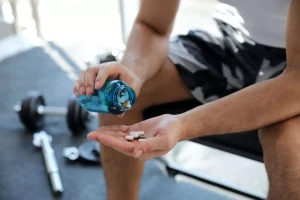
Research and clinical experience have identified a number of factors that promote recovery. Another is reorienting the brain circuitry of desire—finding or rediscovering a passion or pursuit that gives meaning to life and furnishes personal goals that are capable of supplanting the desire for drugs. A third is establishing and maintaining a strong sense of connection to others; support helps people stay on track, and it helps retune the neural circuits of desire and goal-pursuit. Learning new coping skills for dealing with unpleasant feelings is another pillar of recovery. For people who experience mild alcohol withdrawal symptoms, there are safe ways to detox at home. People who experience tremors, shakes or confusion when they quit drinking should consider medically supervised detox.
Risks and Complications

Whether it’s for health, relationship, financial, or any number of reasons, consider creating a list on your phone of the reasons why you want to get and stay sober. Set a reminder once or twice a day to look through your list and share it with a supportive person in your life if you feel comfortable. Deciding to quit isn’t easy, but it’s a brave and commendable first step toward becoming sober. You may not be completely ready to stop drinking or know exactly how to get sober from alcohol, but even just having the thought that you want to stop and need help is a good place to start.

What does drinking alcohol do to your body?

Treatment and education can help adults learn techniques for how to overcome alcoholism handling urges and ways of accepting and managing negative emotions. Treatment and information aimed at adolescents can help them learn techniques for managing both positive and negative emotional states. In addition, self-care is a vital foundation for a healthy new identity. At the very least, self-care should include sleep hygiene, good nutrition, and physical activity. Sleep is essential for shoring up impulse control and fostering good decision-making.
What Are the Legal Consequences of Alcohol Abuse?
The American Addiction Centre (ACC) are available 24/7 to provide confidential advice regarding treatment options. It might also be useful to contact a healthcare professional who specializes in addiction. They may be able to provide guidance on the best ways to approach someone with AUD.
Finding Treatment for Alcoholism

For people who experience hallucinations as part of alcohol withdrawal, these may begin in the 12- to 24-hour time frame. When that person cuts out alcohol, there is a period when their brain hasn’t yet received the message and still overproduces the stimulating chemicals. With alcohol out of the equation, though, these chemicals cause withdrawal symptoms. A cold shower can help you physically reset if you are experiencing strong urges to relapse.
- The type of treatment someone may need will depend on personal circumstances, such as underlying mental health issues, current alcohol use, and any previous attempts to quit.
- The important feature is that the interest avert boredom and provide rewards that outweigh the desire to return to substance use.
- Maintaining a calm and comfortable environment, staying hydrated and avoiding stimulants like caffeine is also helpful.
- Withdrawal symptoms can quickly go from a bad hangover to a serious medical situation.
Top doctors in ,

Because families are interactive systems, everyone is affected, usually in ways they are not even aware of. When a person https://ecosoberhouse.com/ goes into treatment, it isn’t just a case of fixing the problem person. The change destabilizes the adaptation the family has made—and while the person in recovery is learning to do things differently, so must the rest of the family learn to do things differently. Otherwise, their behavior is at risk of cementing the problem in place. Shame is an especially powerful negative feeling that can both invite addiction in the first place and result from it. Either way, it often keeps people trapped in addictive behaviors.
